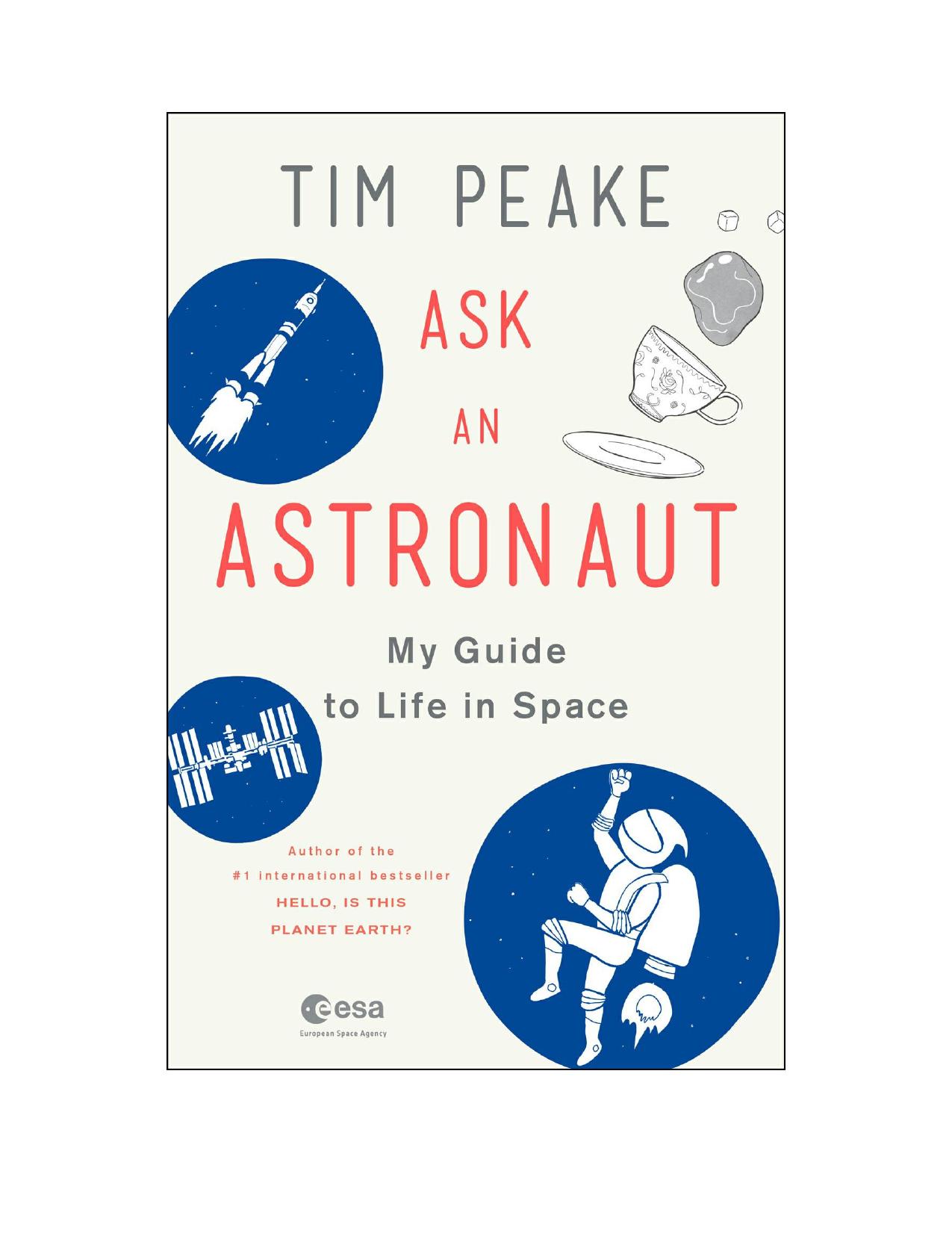Ask an Astronaut by Tim Peake

Author:Tim Peake
Language: eng
Format: epub, pdf
Tags: Biography & Autobiography / Adventurers & Explorers, Technology & Engineering / Aeronautics & Astronautics
Publisher: Little, Brown and Company
Published: 2017-10-17T04:00:00+00:00
Did you know?
• It is not standard procedure for astronauts to have their appendix removed prior to flight.
Q What would happen if there was a fire on the space station?
A During my mission there were a couple of ‘fire’ emergency warnings, but thankfully they turned out to be false alarms. However, we treat every situation as if it were a real emergency, of course. If there’s a fire on the space station, the first thing the crew does is to warn the others, gather together in a safe area and then start working on the problem. Sometimes the fire may be very obvious, such as large visible flames or billowing smoke. Such a fire occurred on the Mir space station in 1997, when an oxygen canister ignited and fuelled an intense fire that damaged the station and put the crew’s lives at risk. NASA astronaut Dr Jerry Linenger was on board at the time and described the fire as a ‘raging blowtorch’.
Astronauts would probably rate a fire in space as one of their greatest fears. What made the Mir fire particularly dangerous was that the flame grew rapidly in size and intensity, reaching the far wall of the module and threatening to burn its way through the hull. If that had occurred, then the crew would undoubtedly have perished in minutes as the station’s vital atmosphere escaped rapidly into space. Furthermore, the flame was blocking the path to one of the Soyuz spacecraft, leaving no option to evacuate. The crew eventually extinguished the fire and, despite thick smoke permeating the station, were able to clean the atmosphere and remain on board.
Of equal concern are small fires that are hard to find–perhaps there’s just a smell of burning or a smoke-detector alarm with no other indications. The space station is a large place, with hundreds of panels covering electrical equipment. It’s imperative for the crew to rapidly locate the fire before it spreads, remove the electrical power (electricity is the most likely source of ignition) and extinguish the flames.
Astronauts have procedures to deal with every possible case of fire, depending on where it has occurred and the severity of the situation. The crew will often split into teams to deal with a fire. For example, one pair may remain in the safe haven, communicating with the ground and controlling the space station via computers. Another pair will be the fire-fighting team, moving through the space station with breathing apparatus to locate and extinguish the fire, using carbon dioxide, water mist or foam fire extinguishers. The third pair can support the fire-fighting team, retrieving equipment and closing hatches to unaffected modules, preventing the spread of smoke contamination. As you can imagine, all this activity requires careful coordination, and astronauts spend many hours training as a crew and with their ground teams until their response to a fire becomes second nature.
The smoke-detectors also trigger an automatic response from the ISS to shut down all ventilation systems, so as not to feed more oxygen to the fire, and to reduce the spread of smoke throughout the station.
Download
This site does not store any files on its server. We only index and link to content provided by other sites. Please contact the content providers to delete copyright contents if any and email us, we'll remove relevant links or contents immediately.
Tools of Titans by Timothy Ferriss(8347)
Turbulence by E. J. Noyes(8008)
Secrets of Antigravity Propulsion: Tesla, UFOs, and Classified Aerospace Technology by Ph.D. Paul A. Laviolette(5358)
Astrophysics for People in a Hurry by Neil DeGrasse Tyson(5169)
Room 212 by Kate Stewart(5091)
Design of Trajectory Optimization Approach for Space Maneuver Vehicle Skip Entry Problems by Runqi Chai & Al Savvaris & Antonios Tsourdos & Senchun Chai(5055)
Pale Blue Dot by Carl Sagan(4984)
The David Icke Guide to the Global Conspiracy (and how to end it) by David Icke(4685)
A Journey Through Divination and Astronomy by Publishing Pottermore(4370)
Goodbye Paradise(3790)
Apollo 8 by Jeffrey Kluger(3693)
COSMOS by Carl Sagan(3606)
The Five People You Meet in Heaven by Mitch Albom(3545)
Losing the Nobel Prize by Brian Keating(3527)
How to Read Water: Clues and Patterns from Puddles to the Sea (Natural Navigation) by Tristan Gooley(3448)
Brief Answers to the Big Questions by Stephen Hawking(3411)
How to Read Nature by Tristan Gooley(3315)
The Order of Time by Carlo Rovelli(3174)
A Brief History of Time by Stephen Hawking(3009)
